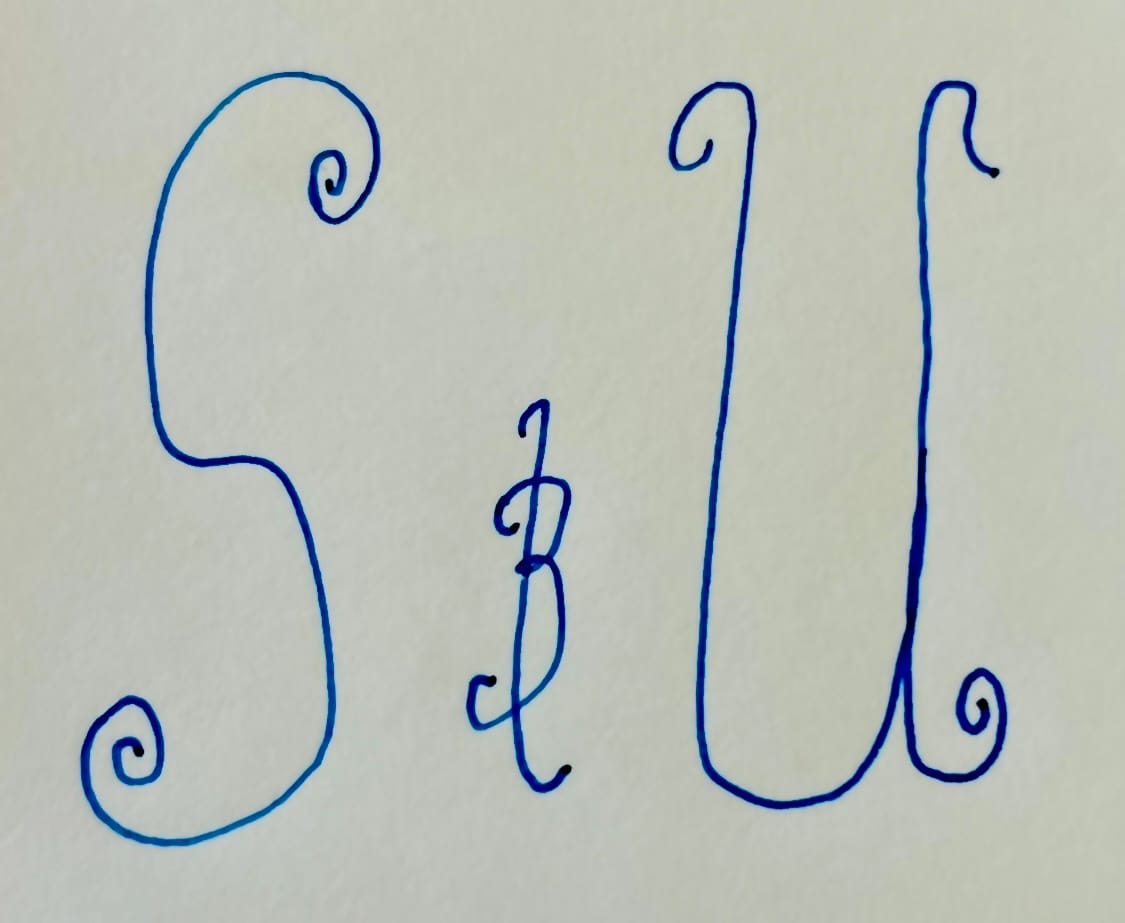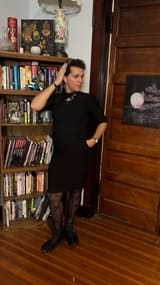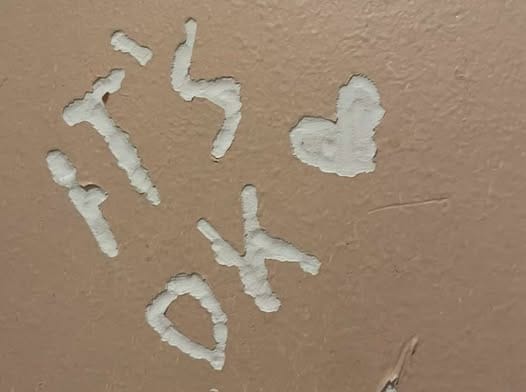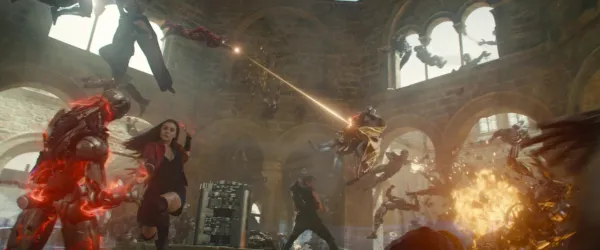The Tortured Audits Department

Gotta give it up for an album whose entire tone is set with its announcement. When Taylor Swift announced her newest album’s release date in her acceptance speech for her last newest album’s Grammy win for Pop Album of the Year last year, the overall vibe both allegedly in the room and from the culture at large was a deflated “More of this?” Swift in recent years has crossed into a bloat era not unlike that of the early ‘20s MCU, where the intentions and semiotics of her work are harded to hold onto amidst a deluge of vault tracks, extended editions, one-offs, and rereleases. Never has that been more the case than with last year’s The Tortured Poets Department, whose canonized double album The Anthology edition is ripe, like so many double albums, for a recut as a single record through which we can try and understand where Swift’s at these days.
Few things before we begin.
Thoughts on TTPD as a whole: It’s not great. Swift is talented and discerning enough that I think the only time she’ll drop an actually bad album is if she makes some wild, late career swing that just doesn’t work. Her contemporary misses are more likely to be something like TTPD, which is more smotherlingly tepid than anything else, with its peaks flattened by an abundance of blah. It’s exhausted and exhausting, and while that’s made for fascinating records by other artists (Follie a Deux by Fall Out Boy, Kacey Musgraves’ star-crossed jump first to mind), this record just doesn’t have the firepower to get there. There’s not much essential material for a 31 track, two hour album. It makes me wish she’d just say “no” and control the firehose a bit.
This exercise isn’t a hack to make a “better” TTPD as much as it’s a thought experiment to engage with the record. I’m not sure a five star version of it exists, and if it does, it’s maybe a half-hour long. On a related note…
The purpose of this project is to build TTPD as a one-disc Taylor Swift album, and all that entails. Which means that it’s going to be too long and the sequencing may feel a little jank. This is by design. Swift is the type of artist who chased “All Too Well” with “22,” and dropped the somber tune about her mother’s illness in between the one about being horned up and a series of gags about dating a British guy. I’m copying that energy.
Track one: “The Black Dog”
Between this and “Fortnight,” I like “The Black Dog” more as an opener. That lift-off at “Old habits die screaming” is a terrific escalation point, and the song’s fidgetiness over what an ex is doing now is a great way to introduce what TTPD is about.
Track two: “The Tortured Poets Department”
Keeping the title track in its place. Don’t fix what aint broke, and we have a lovely callback this way to Fearless, Speak Now, Red, and Lover all putting their title tracks toward the front (evermore is the only break with this tradition).
Track three: “Down Bad”
This one only moved a spot up. With how it interacts with the themes of the album (being a little deranged over a guy with whom It Is Complicated), it made sense to leave this in the early running. Plus, her records tend to open with a run of pretty accessible tunes.
Track four: “I Can Fix Him (No Really I Can)”
Here’s where we start mixing it up. I wanted to put a shorter song up here, as well as one that pointed toward things with The Guy not going well, pointing toward the tumult of:
Track five: “loml”
The Tortured Poets Department’s original track five, “So Long, London” feels endemic to what plagues the album overall. Putting as explicit a Joe Alwyn breakup song at the storied fifth track spot telegraphs emotional devastation, but all “So Long, London” does is make me want to listen to The National. The song doesn’t live up to the drama, which is the epitaph of the record writ large, so “loml” takes its place.
Track six: “I Can Do It With a Broken Heart”
Pivoting from the emotional terrorism (complimentary) of “loml” to “I Can Do It With a Broken Heart” felt appropriately goofy in terms of the tracklisting. “ICDIWaBH” is fine, but feels like evidence that Swift and Jack Antonoff (a guy I’ve come around on in the last few years) are creatively gassed together. A pop radio jam like this should be pulled toward the front of the album; sixth place makes sense.
Track seven: “The Bolter”
The Anthology is littered with these shopworn acoustic tracks where none of them are bad, but it takes me a second to remember which is which while I’m listening, and even then, my reaction tops out at a soft “oh, that one’s fine.” This feels most emblematic of Swift’s “more is more” Content Era, where all the songs, alternate versions, vault releases, and different editions end up drowning each other out. Anyway, I included “The Bolter” because it’s a good songwriting sketch.
Track eight: “But Daddy I Love Him”
“But Daddy I Love Him” is indicative of TTPD overall for both good and bad. On paper, it’s a legit intriguing kissoff to those who criticize Swift’s romantic choices (which is a fascinating place to even be in as an artist–we’re galaxies away from “Mean” where the barrel of the pen is aimed at critics and snobs, “But Daddy I Love Him” with its “Sarahs and Hannahs in their Sunday best” could be about a couple of Swifties mad that she went out with Matty Healy), but at five and a half minutes that always has me checking the track time around three, it’s just too plodding a listen. Ah well.
Track nine: “I Look in People’s Windows”
Taylor Swift is kind of funny. Exactly how much of that shines through is an eye of the beholder affair, but I think this song’s type of daffy imagery and her approach to it is legitimately funny. “ILiPW” is nice and light on its feet, which makes up for “But Daddy I Love Him” floundering, and goes well in the middle of an album.
Track ten: “I Hate It Here”
Is TTPD Swift’s loneliest record? There’s an extra layer of insulation here over Reputation, whose moodiness could be offset with the New Relationship Energy of “Delicate” or “Getaway Car.” TTPD is more likely to include something like “I Hate It Here,” a song about the value in fucking off from the real world. Yes, it’s also the one with the line about liking the 1830s, but in context, that line’s about spiking your friends’ conversation because you’re too cranky to play “which decade would you live in?” And this prickliness and the neediness of “I Look in People’s Windows” is sneakily the most relatable Swift’s been in years, moreso than the plethora of namedrops and lore implications that have clogged up her songwriting.
Track eleven: “So High School”
Easily the best song on the album, so of course it goes somewhere in the middle. My favorite Taylor Swift songs tend to be the ones where she latches onto a moment or feeling and lets her imagination blow it out to the widest screen possible (“Style,” “I Wish You Would,” “Cornelia Street,” etc.), and “So High School” not only does that, but it credibly sounds like the sort of mix CD rock that a high schooler would listen to in 2005. It’s also a song that I end up liking more thanks to the Taylor of it all? Because think about it–she had a truncated high school experience because of when her career started, so being in a romance that feels like something she never had is, well, that’s alchemy.
Track twelve: “The Prophecy”
The real lyrical sins of Swift’s late day work aren’t the avalanches of metaphors or overworked big swings, but the RhymeZone.com sounding-ass lines that plague “The Prophecy,” “So High School,” and plenty of others. Like, “And my friends all smell like weed or little babies” from “Florida!!!” might seem insane on first pass, but it’s just an accurate read on your early 30s, whereas stringing together “please/knees/money/company/me/prophecy” without a strong melody behind it is just clumsy. We’re in fine form here for the back of the record.
Track thirteen: “The Smallest Man Who Ever Lived”
Swift albums err toward being a little samey, so we’re keeping “The Smallest Man Who Ever Lived” because it echoes “But Daddy I Love Him” and “Who’s Afraid of Little Old Me?”’s same “it’s all there on paper, shame about the execution” woes. This is the showstopper where Swift takes a fountain pen to Matty Healy’s jugular in such vicious fashion that it’ll John Mayer sympathetic flashbacks if he hears it…but it just plods too much as a song and it’s surrounded by a legion of mid-tempo tunes that it blends into, lyricial brilliance be damned. It does mark the beginning of the late record rally, though.
Track fourteen: “Who’s Afraid of Little Old Me?”
Potential hot take, but: there’s not a Taylor Swift album that wouldn’t benefit from knocking 10-15 minutes off. Well, maybe not the already briefish 1989. Anyway, in such a case I’d probably bump off some of the more extraneous ballads in order to keep “Who’s Afraid of Little Old Me?” because it feels sturdier and more engaging than some of what else is in the “but what does it mean to be Taylor Swift??” lane of songs. This one works well back here as a “betty” or “marjorie”-style choice that anchors the record’s closing stretch. And I like it a lot.
Track fifteen: “The Alchemy”
I put this here after some fiddling around just to realize it’s track fifteen on TTPD proper. Whoops. Anyway, it fits: Swift albums tend to peter out unceremoniously with good but not especially gripping songs, and “The Alchemy” fits that. It’s nice when it’s on, but that’s about it.
Track sixteen “The Manuscript”
“Now and then she rereads the manuscript of the entire torrid affair” and “The Manuscript"'s overall air of exhausted finality works wonders as the Anthology closer, so naturally I’m porting it to our abbreviated version. It lays the record’s narrative bare and sounds, as many Swift closing numbers do, like the last page of a book–a completed tale to be closed and reshelved before going to the next story.
I’m okay if Swift takes a little time before her next chapter. She’s been omnipresent since the Red rerelease in November 2021; at this point, she doesn’t take up the oxygen in the room as much as she is the oxygen in the room. And it’s all become a bit suffocating–TTPD is the definition of a too-big-to-fail endeavor kept in the spotlight through sheer inertia more than any level of genuine intrigue or songcraft, with some of the most diminishing returns she’s put to tape. The Eras tour has wrapped up, Lord willing she’s somewhere without a phone just relaxing beach side. Maybe she’s getting a massage. All that torture can’t be good on the frame.
Bonus tracks: “Fortnight” and “Guilty as Sin?”
“Banner collaboration that feels a little underwhelming” and “Poppy cut that wasn’t placed on the record”=primo Taylor Swift deluxe edition material. I’m probably cheating by listing these on the same edition, but shhhh.




